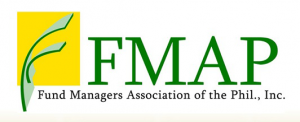by: Ferlyn C. Cargullo
Trinh Nguyen of HSBC discussed the ECB’s decision to implement quantitative easing (QE) and its benefits to various markets. In general, the QE is done to stimulate the growth of one’s economy through the injection of funds in markets thus leading to increase asset prices which leads to wealth effects. Aside from the boost to the Eurozone’s economy, other markets are also affected through the spillover of funds flowing to their economy as well as depreciation or appreciation of their respective currencies. For the US, more Euros in the market would result to a stronger USD which could be good for its imports but might also hurt their exports.
As for emerging markets, China is experiencing a slowdown in its economy and for it to be an attractive investment eligible to take advantage of the liquidity in the market, it must implement some monetary easing measures such as rate cuts and reserve requirement reductions.. Given this backdrop, Trinh has identified India and the Philippines to be the most attractive among the emerging markets. As for the Philippines, she believes that liquidity generated internally is enough to support a sustainable high growth, with this growth further boosted by more funds expected to come in.
